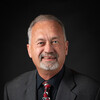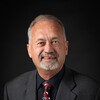Science generally operates within the framework of working models called theories. These models should predict successfully all future discoveries and data, thus confirming those theories. What happens when new discoveries conflict with a theory? Good science would suggest that you move on to a better model and dump the current theory. Well, science has just had a cherished model thus challenged. The Big Bang Theory appears now to be in big trouble.
What is the Big Bang Theory? Have you heard of the Hubble Space Telescope? In 1929, Edwin Hubble, an astronomer, discovered the universe was expanding. They'd been noticing a red shift in stars and galaxies for some time.
What’s a red shift? It’s when light waves are stretched towards the red side of the spectrum, which happens when a light source is moving away. The red shift, in looking at stars and galaxies, seemed to indicate that the universe was indeed expanding.
From what point was it expanding? You could do the math. You could say, “Well if everything is pulling away, everything is this far from each other and they were traveling at this speed, can we wind things back to what happened at the beginning?”
Astronomers came to theorize there had been some kind of explosion billions of years ago. The great astronomer Fred Hoyle was skeptical of an explosion and jokingly referred to the idea as a Big Bang. The name stuck, and Hoyle eventually believed it, too.
In 1964, two radio astronomers, Robert Wilson and Arno Penzias, were listening with a huge antenna that could detect sounds in the universe. They heard what they thought was a humming sound coming from all directions. This seemed to be additional supporting evidence.
It was interpreted to be the energy from an explosion.
A satellite was sent out in 2001, called the WMAP, that was intended to map out this sound and study it. What they found was the Cosmic Microwave Background. This was great news for astronomy. In fact, many perceived this as one of the greatest scientific discoveries of all time — that they could actually see what they believe to be the background, the energy, the aftermath of a gigantic explosion. This energy is considered the echo or remnants of the Big Bang!
The Hubble Space Telescope allowed scientists to view images of galaxies nearly 13 billion light years away. The farthest images, of course, were poorly resolved. Since the best estimate of the age of the universe was about 13.7 billion years, they needed to look farther. Thus the James Webb Space Telescope was launched with the hopes of seeing even further into the past.
What did it reveal? It revealed beautiful and much clearer images of galaxies considered to be young, being near that 13.7 billion light year threshold. But, instead of young-looking galaxies, they found mature ones — and that wasn’t possible if there had been a Big Bang that long ago. You are currently seeing world-famous astronomers saying, “It’s back to the drawing board!”
The fact that the universe is expanding seems to be clear. Maybe that is supported by this Bible verse from Isaiah 40:22: “It is He who sits above the circle of the earth, and its inhabitants are like grasshoppers, Who stretches out the heavens like a curtain and spreads them out like a tent to dwell in.” That’s stated in the present tense. He currently is stretching the heavens out.
For years, scientists didn’t like the idea of a great “creative” act like an explosion, preferring to believe that the universe had always existed in a sort of steady-state. It will be interesting to see where they go now on the universe’s origins.
As Christians we might agree with the bumper sticker saying, “I believe in the Big Bang. God spoke and BANG, it happened!” One could wish that on the important subject of the origin of life and evolution that science could see how the evidence is so overwhelming against their popular theories. Harvard biologist Richard Lewontin spoke for many when he warned, “We must not allow a divine foot in the door!” In so stating, he exemplified the atheistic foundations for much of science.
The Big Bang Theory isn’t the only science theory that is challenged by truth. Jesus famously predicted that knowing the truth would produce freedom in John 8:32. True science will glorify our Creator. Perhaps more light on origins in these last days will do just that.









